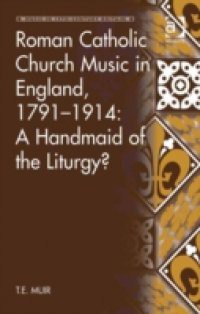Roman Catholic church music in England served the needs of a vigorous, vibrant and multi-faceted community that grew from about 70,000 to 1.7 million people during the long nineteenth century. Contemporary literature of all kinds abounds, along with numerous collections of sheet music, some running to hundreds, occasionally even thousands, of separate pieces, many of which have since been forgotten. Apart from compositions in the latest Classical Viennese styles and their successors, much of the music performed constituted a revival or imitation of older musical genres, especially plainchant and Renaissance Polyphony. Furthermore, many pieces that had originally been intended to be performed by professional musicians for the benefit of privileged royal, aristocratic or high ecclesiastical elites were repackaged for rendition by amateurs before largely working or lower middle class congregations, many of them Irish.However, outside Catholic circles, little attention has been paid to this subject. Consequently, the achievements and widespread popularity of many composers (such as Joseph Egbert Turner, Henry George Nixon or John Richardson) within the English Catholic community have passed largely unnoticed. Worse still, much of the evidence is rapidly disappearing, partly because it no longer seems relevant to the needs of the modern Catholic Church in England.This book provides a framework of the main aspects of Catholic church music in this period, showing how and why it developed in the way it did. Dr Muir sets the music in its historical, liturgical and legal context, pointing to the ways in which the music itself can be used as evidence to throw light on the changing character of English Catholicism. As a result the book will appeal not only to scholars and students working in the field, but also to church musicians, liturgists, historians, ecclesiastics and other interested Catholic and non-Catholic parties.

